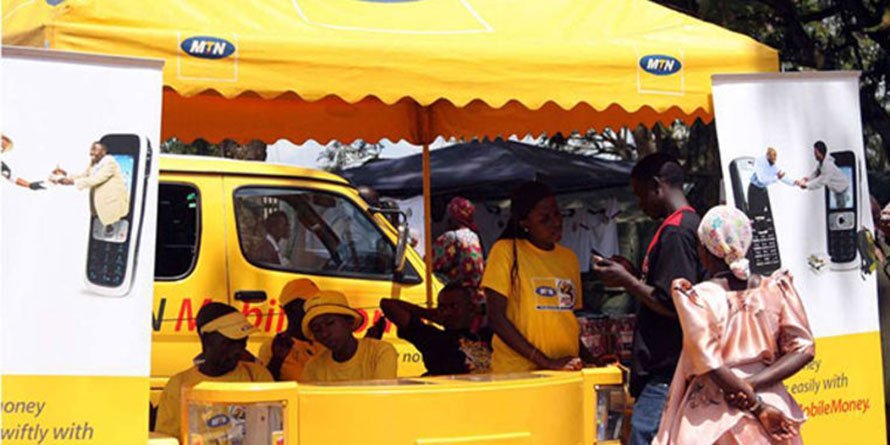MTN booths in Kampala, Uganda. FILE PHOTO | NMG Kenyans will get a chance to own a piece of Uganda’s MTN and Airtel after the telcos were directed to reserve some shares to East Africans in the compulsory listing of their stocks at the Kampala bourse.
This is line with directive that compels all foreign-owned telcos to reserve at least 20 percent share-ownership for locals in a move meant to boost Uganda’s foreign exchange inflows through payment of dividends to locals.
Uganda Communications Commission (UCC) last year directed all foreign-owned telcos to reserve at least 20 percent of shares to locals and East Africans by end of 2021 in the deal meant to spur local ownership of the telecoms industry.
UCC did not, however, disclose what chunk of the 20 percent will be for Ugandans and how much will be reserved for Kenyans, Tanzanians, Burundians, Rwandese and South Sudan nationals.
“The shares are restricted to Ugandans, and also citizens from the East African Community (EAC),” Ibrahim Bbosa, UCC spokesman said.
Currently 18 companies are listed on the Ugandan bourse and the directive on MTN Uganda and the local unit of India’s Bharti Airtel will make them the first telcos to be listed.
Uganda now becomes the third nation in the region to sell part of the shares of foreign-owned telcos to locals 12 years after the Kenyan government sold 25 percent or 10 billion shares of Safaricom.
Kenya, however, reserved eight billion shares or 80 percent of the total shares floated to locals who included retailers, Safaricom dealers and employees while the remaining went to foreigners.
Under the IPO for Safaricom shares in 2008, the State set Sh5 per share for East African investors and Sh5 for foreigners. The IPO was oversubscribed by 532 percent.
Tanzania in 2017 forced the then foreign-owned telecom operator Vodacom Tanzania Plc to sell shares in an IPO, but restricted participation to its nationals. It later opened the offer to foreigners due to sluggish uptake by locals.
